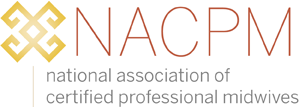By Anne C. Porter MD, Sharon Hunter PhD, Kate Noonan MSW, M. Camille Hoffman MD, MSc
Originally Published in the Journal of Midwifery and Women’s Health
INTRODUCTION
Antepartum maternal stress, even in the absence of diagnoses of anxiety and depression, is associated with a wide range of adverse pregnancy outcomes for both the woman and the child. Prenatal stress is linked to increased risk of preterm birth and low birth weight. After birth, antepartum stress increases the risk of postpartum depression and impacts maternal-neonatal bonding.Recent research suggests that prenatal stress has long-lasting effects on childhood neurodevelopment. Therefore, it is critical that pregnant patients are given tools to decrease their stress levels to secure the best possible outcome for themselves and their children.
Treatment options for stress during pregnancy are limited. Pregnant patients and their health care providers must constantly weigh the benefits and potential risks of any given medication for the patient and the fetus. Moreover, patients are resistant to initiate pharmacologic treatment options for stress, depression, or anxiety during pregnancy. There are several nonpharmacologic treatment options for depression and stress during pregnancy, including interpersonal therapy, cognitive behavioral therapy, bright light therapy, massage therapy, and acupuncture. Although psychotherapy has clear benefits for patients experiencing antenatal depression, the findings regarding the efficacy of light therapy, massage therapy, and acupuncture have been mixed. Additionally, these therapies can be costly or inaccessible to many patients. Therefore, there is an urgent need for a nonpharmacologic, easily accessible option to help patients manage stress during pregnancy.
Mindfulness, defined as attention and awareness of the present moment without judgment, is widely used outside of pregnancy as a primary or adjunct treatment for stress, anxiety, and depression. A mindfulness practice has been shown to decrease several physiologic markers of stress including blood cortisol levels, C-reactive protein levels, blood pressure, and heart rate. Within pregnancy, emerging evidence indicates that mindfulness improves depressive, anxiety, and stress scores. Furthermore, these studies show that mindfulness strategies lead to fewer relapses of postpartum depression, fewer sleep disturbances, and overall milder mood symptoms. Intriguingly, a telehealth intervention that delivered mindfulness-based cognitive behavioral therapy to groups of antepartum patients appeared to reduce symptoms of prenatal depression. This study suggests that patients can benefit from mindfulness outside of a traditional one-on-one, in-person psychotherapy setting. Similarly, a recent online adaptation of mindfulness interventions for pregnancy has shown promising results in reducing depressive symptoms. Helping patients develop a mindfulness practice is an intriguing tool for combating antepartum stress.
Although a mindfulness practice has been shown to improve outcomes for pregnant patients and their chidren, the effectiveness and feasibility of a mindfulness smartphone application (app) on reducing stress and improving pregnancy outcomes has not yet been fully investigated. Emerging studies have shown promise in app-based mindfulness practices for pregnant patients, with high feasibility and acceptability of these interventions. Excitingly, a recent randomized control trial demonstrated a significant improvement in depressive symptoms and anxiety outcomes for smartphone-based mindfulness training in pregnancy. Apps have the benefit of being less costly than one-on-one mindfulness interventions and accessible to patients who live in regions with fewer mental health professionals.
Expectful is a commercially available app designed to engage pregnant patients in a mindfulness practice. Expectful has an extensive library of guided imagery meditations and body scan exercises that are categorized by trimester and emotional state. These exercises were created with the help of licensed psychologists, hypnotherapists, and meditation experts. Our objective in this pilot study was to assess the feasibility and impact of an app-based mindfulness practice, begun in the first trimester, on maternal stress and pregnancy outcomes.
Read the Full Research Article on The Journal of Midwifery and Women’s Health
Download a PDF Here: A Mindfulness Application for Reducing Prenatal Stress
© 2022 The Authors. Journal of Midwifery & Women's Health published by Wiley Periodicals LLC on behalf of American College of Nurse Midwives (ACNM).

